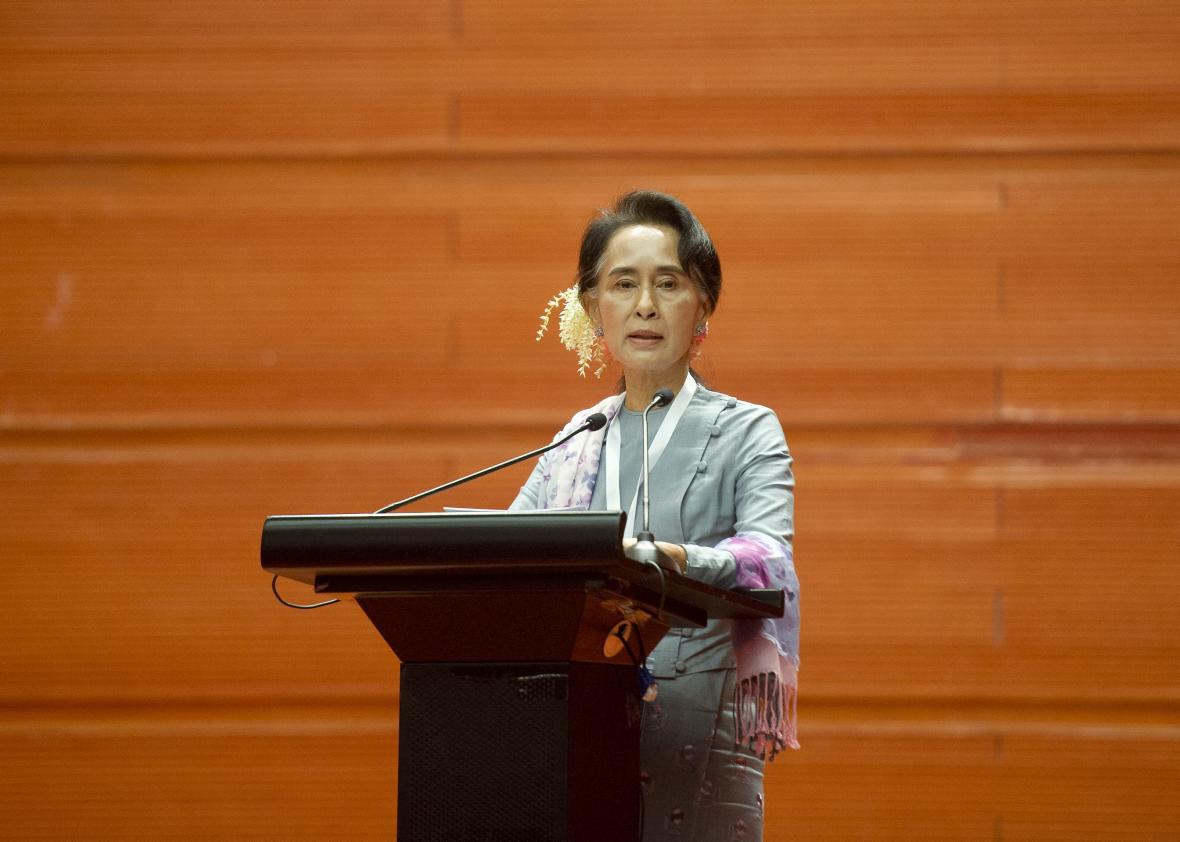Last November, Myanmar experienced a major political shift. After Aung San Suu Kyi’s National League for Democracy (NLD) trounced the ruling Union Solidarity and Development Party in a historic general election, pundits didn’t mince their words: Democracy had come to the former hermit state.
But for Myanmar’s LGBTQ citizens, this newfound democracy has a blind spot—and it’s likely to linger, even under the liberal leadership set to take power April 1.
On the one hand, there’s a kernel of truth to the sweeping declarations about the “dawn of a new era” and the “advent of democracy” in Myanmar. Since the country’s military junta handed over power to a so-called quasi-civilian government in 2011, there’ve been several promising developments. In that same year, for instance, the government released dozens of political prisoners in a national pardon. In 2013, the European Union lifted some of its sanctions on what had for decades been one of the most isolated countries on the planet. (Though, to be fair, Europe has a spotty peacekeeping record in the region). Rather than being mere window dressing, the 2015 election could position Myanmar’s newly anointed leaders to accelerate the country’s glacial moves toward democracy.
It’s doubtful, however, that LGBTQ citizens will figure significantly in this heralded rebirth. This is due, in part, to how gender identity and sexual orientation are viewed in Myanmar. Though the country gained independence from more than a century of British rule in 1948, a resilient colonial hangover remains. Take section 377 of the former British penal code, which criminalizes “carnal intercourse against the order of nature” (put plainly, sodomy) and which is still on Myanmar’s books. While rarely enforced, it’s not uncommonly used, along with anti-loitering laws, to extort bribes from, especially, transgender women, whose identity is often seen in the majority-Buddhist country as karmic comeuppance.
What’s more, lawmakers—including former prisoner-of-conscience-turned-democracy icon Aung San Suu Kyi—typically grow queasy at the unpopular thought of promoting LGBTQ rights. Navigating a fragile democracy through an even more delicate political transition seems challenging enough.
So how might Myanmar pivot away from this ossified situation? To find answers, I talked to some of the country’s most vocal LGBTQ activists. According to Billy Stewart, senior health adviser at the UK’s Department for International Development, which works to address Myanmar’s substantial humanitarian needs, the solution could lie in stitching LGBTQ rights (which are frequently dismissed by lawmakers as a low-priority issue) into the broader DNA of human rights. This may then increase their salience among the public.
“We [activists] see that a softer approach might be the best strategy. For example, it might be possible to bring in LGBTQ rights as a part of, say, a broader reform of the criminal justice system and the penal code, which still includes section 377,” Stewart tells me.
This sort of soft power was recently on display at the &PROUD LGBTQ film festival, which Stewart himself helped to co-direct. One of the films shown on opening night was the award-winning This Kind of Love. The 45-minute documentary film chronicles the story of Aung Myo Min, director of advocacy organization Equality Myanmar and arguably Myanmar’s best-known LGBTQ rights campaigner, who fled the country after a government crackdown on the 1988 student uprising, only returning 23 years later.
In addition to screening shorts and feature-length films from across the world on anti-LGBTQ discrimination, the event also focused on how Myanmar’s nascent LGBTQ rights movement could play out in a new political climate. To this end, Stewart says that festival organizers made sure to include a panel discussion with the human rights commissioner.
Aung Myo Min, in a separate discussion, echoes these tactics. In particular, he points out to me how activists intend to draw up a handbook for lawmakers that highlights all laws considered repressive of fundamental human rights, including the Peaceful Assembly Law often used to imprison political activists, and explains why these laws should be repealed, or at the very least amended. Later on, after gaining a clearer picture of the NLD’s stance regarding threats to LGBTQ citizens, the aim is to touch on more sensitive laws, such as section 377, and to hold seminars with lawmakers on laws buffeting LGBTQ equality.
Still, above all, it’s key to proceed with caution.
“I think the story is that we don’t really know where LGBTQ rights will go with the NLD,” Stewart says, adding that activists aren’t pushing the party too hard “in case this incurs the fire of the far-right Buddhist movement”—known by its Myanmar acronym Ma Ba Tha—“and thereby becomes a religious issue that could make it much more intractable.”
With power soon changing hands, it’s crucial to keep a watch on the pace of reform in Myanmar and how this speaks to protecting and empowering its LGBTQ citizens, particularly lesbians and transgender women. The country isn’t likely to liberalize as much, and certainly not as rapidly, as some observers predict. But that doesn’t mean Myanmar can’t continue to bend toward a more inclusive brand of democracy.
